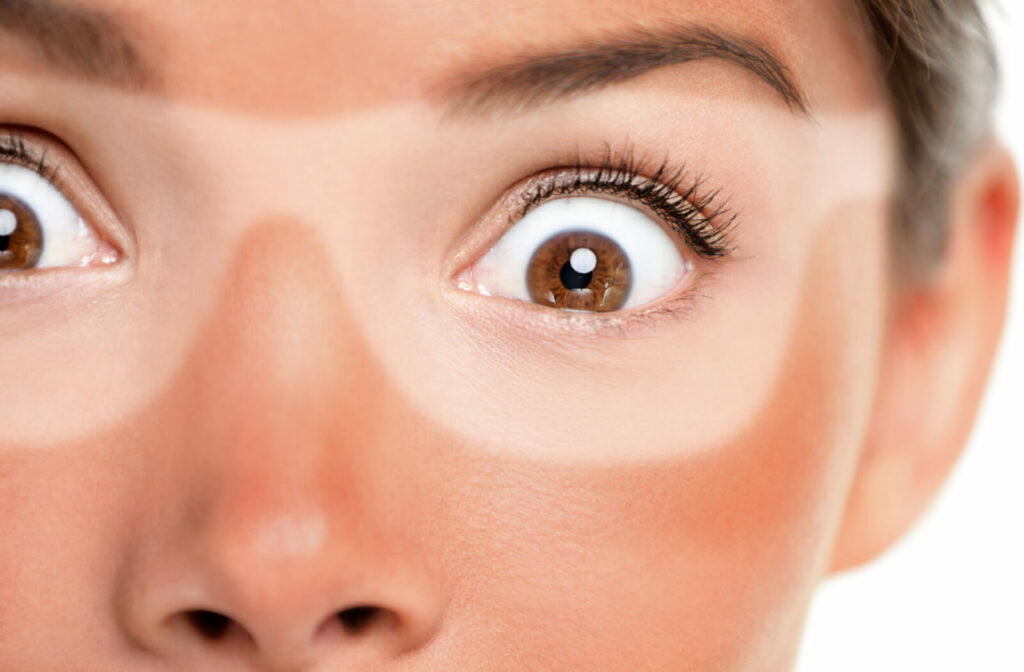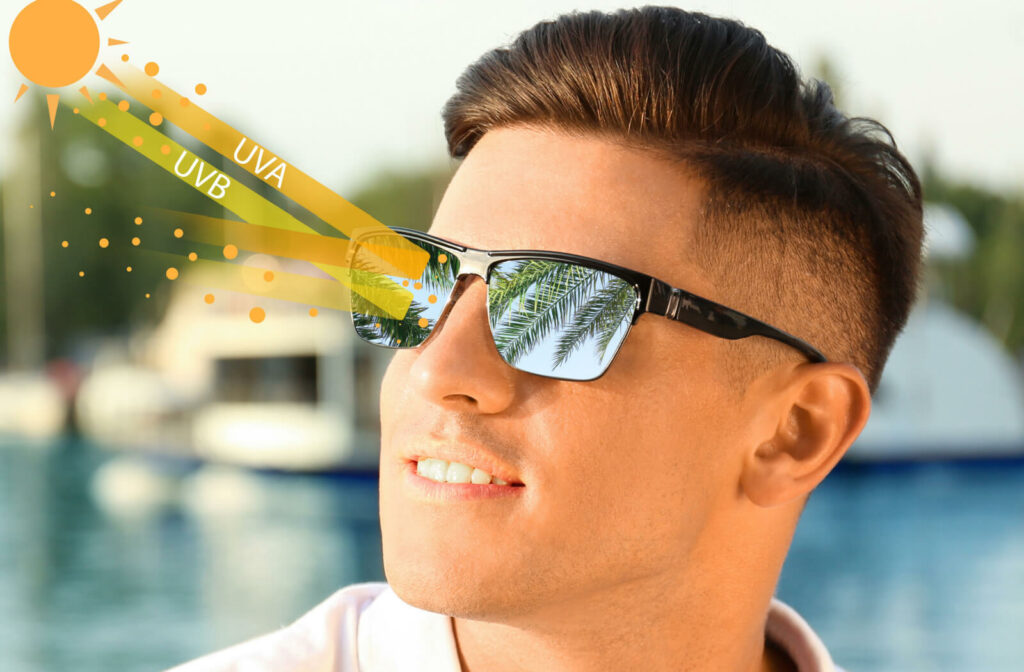Sunglasses are much more than just a fashionable accessory. Sunglasses can provide essential protection from the sun’s harmful ultraviolet (UV) rays.
If you already require prescription glasses to see, you may be wondering if prescription sunglasses are worth the extra expense. Getting a high-quality pair of prescription sunglasses is a great investment in your eye health. Prescription sunglasses can provide convenient protection from sun damage and prevent potentially vision-threatening conditions like cataracts and macular degeneration.
While a wide variety of sunglass options are available, not all sunglasses provide the same level of protection. To get the best protection for your unique eyes, consult with your eye doctor before purchasing sunglasses.
Why Do I Need Sunglasses?
One of the best ways to protect your eyes from UV rays is by wearing UV-blocking sunglasses. Exposure to UV light can cause permanent and potentially vision-threatening damage to your eyes. Unlike visible light, UV light can more easily penetrate the tissues of your eyes and cause damage. Conditions including cataracts, macular degeneration, and eye cancer can all be caused by exposure to the sun’s UV rays.
Sun damage typically develops over time. However, it is possible to experience immediate and short-term damage after exposure to UV rays, including photokeratitis and sunburn.
Sun damage doesn’t just occur during the sunny summer months. Exposure to UV rays can occur all year long, even on cloudy or overcast days. To help prevent any type of UV-related damage, it is important that you make wearing sunglasses outdoors a regular part of your routine.
Whether you choose prescription or non-prescription sunglasses, investing in a quality pair of sunglasses that will provide optimal UV protection is important.
The American Optometric Association recommends that you look for sunglasses that:
- Block out 100% of UV radiation
- Screen out 75-90% of visible light
- Have lenses that are perfectly matched in color and free from distortion and imperfection
- Have lenses that are gray for proper color recognition

Benefits of Prescription Sunglasses
Prescription sunglasses can provide a convenient, all-in-one vision solution for outdoor activities.
Some key benefits of prescription sunglasses include:
- Convenience: Prescription sunglasses offer the dual benefit of sunglasses and regular prescription glasses. They remove the need for stacking sunglasses on top of your regular glasses.
- Protection: Prescription sunglasses can be made with lenses that provide complete protection from UV rays. Make sure to ask your eye doctor about 100% UV-blocking lenses while getting a prescription for sunglasses.
- Vision correction: Prescription sunglasses provide the same level of vision correction as your regular glasses, which means you’ll be able to see clearly while protecting your eyes.
- Comfort: Prescription sunglasses are custom-fit to your face and prescription, which means they will be better fitting and more comfortable than regular sunglasses.
Prescription sunglasses are a great option for individuals who already require prescription glasses to see. There is a wide range of options available to meet your individual vision needs, lifestyle, and budget.
Alternatives to Prescription Sunglasses
Prescription sunglasses aren’t always the best option for your specific needs. There are a number of alternative options that might better fit your vision needs, lifestyle, and budget while still providing UV protection.
Transition Lenses
Transition lenses, also called photochromic lenses, offer an innovative vision solution with the dual benefit of sunglasses and eyeglasses in a single lens. These lenses are designed to automatically darken when exposed to bright sunlight and return to a regular tint in dimly lit environments.
Transition lenses can eliminate the hassle of swapping between glasses and sunglasses throughout your day and provide constant, adaptable UV protection.
Some things to consider before purchasing transition lenses include:
- The darkening and lightening will vary depending on the brand of lenses.
- Transition lenses can take longer to adjust in cold-weather environments.
- They do not adjust well in cars due to the UV protection in auto glass. You may require an additional pair of sunglasses specifically for driving.
Contact Lenses
Contact lenses can be a great option for anyone looking for a more flexible vision solution. There are hundreds of contact lens options available today, including lenses to accommodate a variety of vision needs.
Many contact lens brands include some degree of UV protection in their lenses. However, you will still need to wear non-prescription sunglasses while outdoors to achieve sufficient protection.
Clip-on Sunglasses
Clip-on and wrap-around sunglasses can offer a more cost-effective alternative to prescription sunglasses. As the name implies, clip-on sunglasses are designed to clip directly onto your existing eyeglass frames. In most cases, clip-on sunglasses need to be custom fit to your eyeglass frames, so you will need to specifically shop for eyeglasses that come with a clip-on option.
Wrap-around or over-glasses sunglasses can provide a more universal solution and sit directly over top of your eyeglasses.
Get Started With a Prescription
Whether you are ready to buy prescription sunglasses or want to explore your options, the first step is to book an appointment with your eye doctor.
The knowledgeable team at Pack & Bianes Optometry is here to support all of your eye care needs. Call our office to find out how you can stay protected from UV light all year long.



